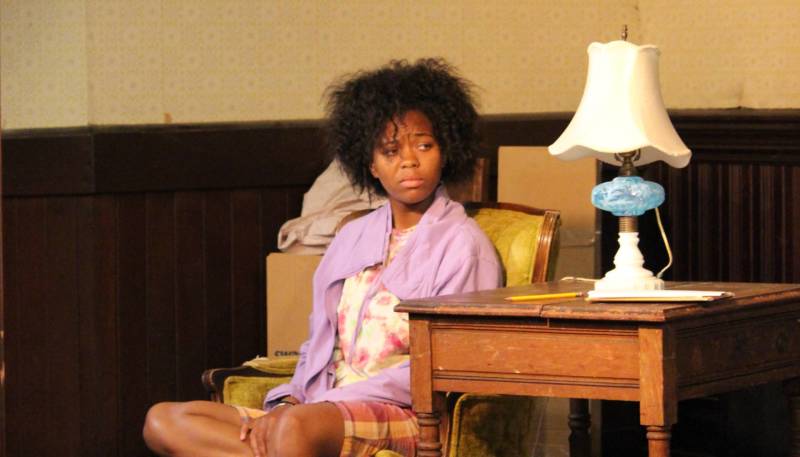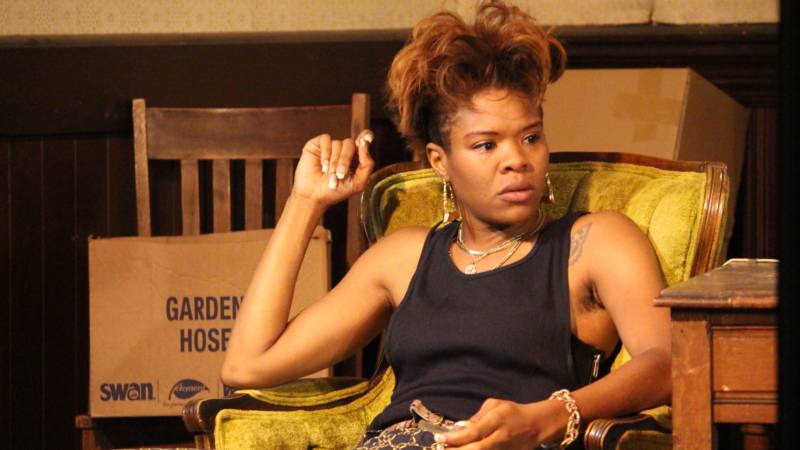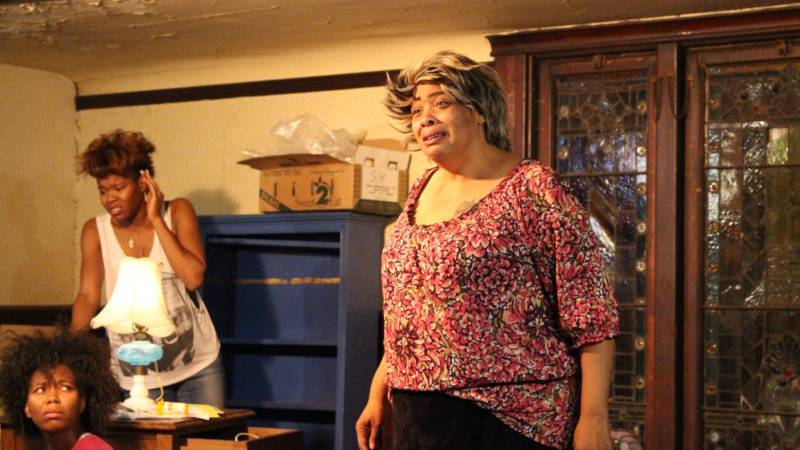Katori Hall’s Hurt Village—in a wild, take-it-to-the limit Ubuntu Theater Project production staged at a crumbling, old Baptist church in Oakland — litters the stage with false prophets. You want to warn the play’s 13-year-old, rap-obsessed heroine, Cookie, to run. But the question is to where. Every possibility in front of her is poisoned with the devil’s truth: knowledge and power, but at the cost of one’s soul.
Hall’s vision is relentless and harrowing. Cookie’s home, the Memphis housing project “Hurt Village,” is more of a state of mind than an actual place. That it is scheduled to be demolished and all the residents relocated — as actually happened to the real Hurt Village over the course of three years starting in 2000 — only adds to its mythic allure. Here, on the cusp of radical social change, anything can happen, and the brilliant Cookie feels it all.
The play is rich in incident and character. There’s the matriarch Big Mama, Cookie’s great-grandmother, a toxic mix of goodness and fatalism; there’s Cookie’s mother, Crank, a recovered crack-addict, desperate to go to cosmetology school so that she can set up her own salon; and then there’s Cookie’s father, Buggy, a returning Iraq war veteran, who’s kind and gentle and elusive. And that’s just the beginning of the village, whose population includes a drug dealing Fed-Ex driver, a feminist stripper, and a drug kingpin with a penchant for philosophical asides and casual sadism.
So it’s appropriate that the play opens with Cookie taking on the role of village troubadour, the all-seeing artist — “I spin ghetto tales that’ll make you weep,” she declares in a bracing entrance that matches the bravado of the slickest rappers. It’s clear that Cookie’s rhyme is provisional, that she’s testing it out, and that it’s not a finished product. The effect is stunning, though — a complex but plain depiction of a child with real artistic instincts, but, not as yet an artist, and, most importantly, not even close to possessing a full adult consciousness. Cookie’s tales exceed her understanding.

Chaz Shermil is astounding as Cookie and it’s her ability to play these in-between, transitional states that gives the young actress’s performance an uncanny realism. I have no idea whether Shermil is an uncommonly poised teenager or an adult with uncommon abilities. Whatever the case, she manages to convey incompleteness in riveting detail. It’s not just great acting, but a realization of the play’s deepest concerns.



